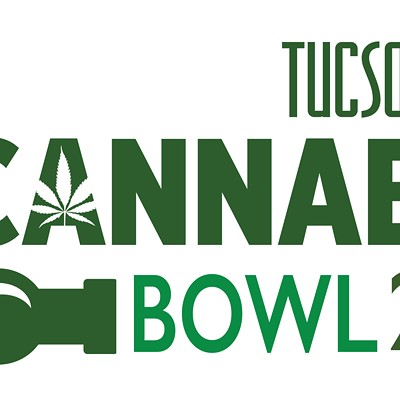Whether he's advocating for marijuana or gathering petitions for a ballot initiative, it's tough to miss Dave Wisniewski, chairman of Safer Arizona, a political action committee. His rigid 6-foot-4-inch stature makes him easy to notice. His giant "Marijuana is safer than alcohol" sign helps, too.
Wisniewski said he uses medical marijuana to treat his back pain and post-traumatic stress disorder. He supported marijuana legalization well before his time in the military, but the conditions he developed while serving overseas in the Army showed him the drug's medical benefits compared to the four pharmaceutical drugs doctors prescribed him after his combat service.
"When I would take the (anti-anxiety drug) lorazepam, it would feel like I was hit in the head with a shovel," Wisniewski said. "When I use cannabis, it's like I'm very calm and collected, and I can get back to actually being productive and go to work."
Statistics show cartels, crime not impacted
Some supporters of the medical marijuana program—and the push for a potential recreational program—argue that a legal, taxed market helps curb drug cartels and illegal trafficking in the state.
Federal and local officials said there's no evidence Arizona's medical marijuana program has hurt the black market.
Phoenix Police Department Commander Brent Vermeer said via email that he didn't have empirical data to show the impact of medical marijuana on law enforcement, but "it unequivocally has not impacted the cartels' sales practices for marijuana."
He wrote in an email that the department has investigated homicides related to marijuana, and burglars recently stole $500,000 worth of marijuana from one dispensary. "Within two days, their front office was robbed at gunpoint of several thousands of dollars," he wrote.
"Violence follows drugs, regardless of whether they are legal or not," he added. "The drugs have value ... and human lives don't to those who operate in the drug world."
Border protection officers at the DeConcini Port of Entry in Nogales said thousands of vehicles enter the U.S. from Mexico there daily. While it's nearly impossible to determine how much of the illicit marijuana that is trafficked through the Mexico border actually remains in the state, Arizona still remains a hub for distribution to other parts of the country, and authorities haven't seen any decrease in trafficking.
Cartel trafficking has shifted, placing more focus on hard narcotics like cocaine, heroin and methamphetamines than in the past, officers said. Despite the change in demand, marijuana still remains the most smuggled drug in Arizona, officials said.
According to the agency, the amount of marijuana seized across all Arizona ports of entry has increased by 19 percent – from 38,050 kilograms to 45,255 kilograms – in fiscal year 2015.
Officer Marcia Armendariz said large cargo shipments of marijuana have increased.
"Marijuana is still there," Armendariz said. "They're still trying to smuggle in marijuana because it will pay off ... the cartels."
Schindel said drug cartels will always exist, because they can sell their product more cheaply.
"They can always undercut," she said. "They don't have the overhead. They don't have the taxes."
Phoenix medical marijuana dispensaries Encanto Green Cross and Nature's AZ Medicines list their cheapest ounces of marijuana at $280, while medium-quality black market marijuana goes for under $210 per ounce in Arizona, according to Price of Weed, a crowdsourced marijuana price index.
Marijuana-related arrests within the state have not seen a dramatic decrease either, according to statewide police data compiled by the Arizona Department of Public Safety.
Yearly possession arrests have dropped since the state legalized medical marijuana, from as high as 20,000 in 2009 to roughly 16,000 per year since 2010. However, arrests for marijuana distribution have remained steady at about 1,600 per year.
Opponents to legalization said the most important marijuana crimes involve children, including kids illegally obtaining legal medical marijuana.
"A big thing parents need to pay attention to is where kids are getting drugs and alcohol from," said Justin McBride of Drug Free AZ Kids. "And the youth survey tells us it was from (medical marijuana) cardholders."
In the 2014 Arizona Youth Survey, a survey of kids in eighth, 10th and 12th grades conducted by the state justice commission, 14 percent of kids who reported use of marijuana stated that they got it from someone with a medical marijuana card. The sample size was roughly 8,000 students.
Revenue and regulations prove challenging to track
In 2010, then-Attorney General Tom Horne estimated the tax from medical marijuana sales would bring in $40 million a year. Five years later, state officials said they still don't have exact tax revenue figures from the sale of marijuana.
While the Department of Health Services keeps track of how much medical marijuana consumers buy in any given year, they don't track how much money changes hands.
The Department of Revenue, the agency in charge of administering tax laws in Arizona, tracks medical marijuana tax collections. But officials said marijuana sales aren't distinguished from sales of other individual retail, so they don't have exact numbers or estimates of how much tax revenue marijuana has generated.
Arizona taxes marijuana sales at 6.6 percent, and cities tack on an additional 2 to 3 percent. Health department figures showed consumers bought more than 9,000 kilograms of marijuana in 2014, which the department estimated generated about $112 million in sales.
Tom Salow, branch chief for Arizona's Medical Marijuana Program, said many states have reached out to use Arizona's regulations as a model. When Arizona became the 15th state to legalize medical marijuana, the pro-legalization campaign emphasized stricter rules and regulations than those found in other medical states.
Twenty-three states and Washington, D.C., have legalized medical marijuana, but Salow said Arizona's system remains one of the best.
"I'm still told today that our regulations are still a model in the country," Salow said.
However, critics of Arizona's medical marijuana system said it's difficult to tell just how well it works. Because of the confidentiality clause written into the voter-approved measure, the Department of Health Services can't release all of the information it collects.
For example, the department can't share information like the physical addresses of dispensaries or individual dispensary inspection records.
The department can share aggregate data, such as infractions among dispensaries and cultivation sites. According to the department's 2014 annual report, inspectors found an average of 12.35 problems per inspection. The department conducted 113 inspections at dispensaries and cultivation sites.
Some of the most common issues inspectors found involved dispensaries that did not have a medical director on site, problems with administrative procedures and poor inventory control.
"That industry is cloaked in secrecy," said Polk, the Yavapai County attorney. "The database is only used to track cardholders."
The department isn't able to use and compare records to better understand the public health impact of medical marijuana in the state because of its heavy restrictions, Polk said.
Groups look ahead to potential recreational legalization
Attempts to pass recreational marijuana through the state Legislature have failed to pick up momentum since medical legalization.
Voter initiatives in Arizona need 150,000 signatures to make it to a ballot, so the push for recreational marijuana will require major financial backing. The Marijuana Policy Project, the national marijuana politics group that backed legalization in Colorado, provides support for one initiative for the 2016 ballot, the Campaign to Regulate Marijuana Like Alcohol.
The national group's support should make it the only initiative capable of gathering the number of signatures needed for the ballot, said Barrett Marson, a spokesman for the campaign.
"We're looking at a multimillion-dollar spending effort that includes getting signatures," Marson said. "That's a significant effort. It could be as much as $1 million to get signatures."
Alfaro, the group's Arizona political co-director, said they will push three key points: The taxes collected from sales will fund education, marijuana is safer than alcohol, and marijuana users will have a legal means to access pot, which will decrease the black market.
"I don't think anyone disagrees that Arizona needs education funding," Alfaro said. "This tax that will generate millions and millions of dollars toward education will be a big boost to that, and that's one of the reasons why our initiative is so popular."
Two of Arizona's most prominent anti-drug forces, Polk and Montgomery, are helping to lead the charge against whatever marijuana initiatives make the 2016 initiative through their Arizonans for Responsible Drug Policy group.
The push for recreational marijuana only shows that medical marijuana companies aren't actually interested in medicine, Polk said.
"Since when is a medicine something you use recreationally? Treat it like a medicine," Polk said. "Keep it locked down."
Seth Leibsohn, chairman for the group, also doesn't buy the notion legalization will affect illegal drug trafficking.
"It would be basically an organized drug cartel," Leibsohn said. "The idea that we would solve a problem in another country, that we would solve cartelized, illegal industry in another country by negatively affecting our children is public policy malfeasance."
On top of opposition from anti-marijuana groups, the Marijuana Policy Project faces challenges from a collection of medical marijuana activists. The Campaign to
Legalize and Regulate Marijuana splintered off from involvement with Marijuana Policy Project and is gathering signatures for a ballot initiative of its own.
That initiative includes higher possession and grow limits and lower penalties for breaking those limits, in addition to the potential for more marijuana stores. But it also targets one section of the policy project's campaign that anti-marijuana groups agree is problematic—potential advantages for current dispensary owners.
The Marijuana Policy Project initiative allows city governments to forbid retail marijuana stores from opening within their borders, but cities could not bar stores opened by prior dispensary owners. It also creates a marijuana board to regulate both medical and recreational licensing, with three of the board's seven members coming from members of the marijuana industry.
"They're protecting their industry, the medical marijuana dispensaries, from newcomers entering the business," Leibsohn said. "(Marijuana lawyer Tom Dean and I) don't agree on much, but he put it well: If the MPP's initiative passes, a handful of people will get very, very wealthy."
This is from a continuing series from America's Weed Rush, an investigation of marijuana legalization in America, a 2015 project of the Carnegie-Knight News21 program produced by the nation's top journalism students and graduates.









